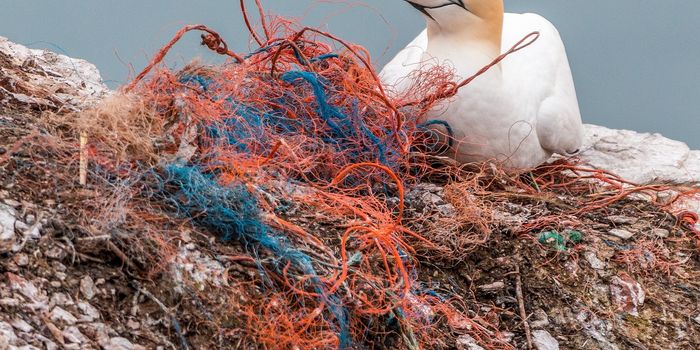Fish Solve Problems By 'Pooling' Experience Collectively
When it comes to the fish world, the subsurface creatures sometimes find themselves met with problems that require thought to circumvent. Of course, not every fish in the sea is as smart as the next, and that’s why to survive, shoals of fish will often collectively combine their intelligence to problem-solve.
Published in the journal Ecology & Evolution, researchers from the University of St. Andrews explain their findings in a study where they observed this behavior first-hand.
Image Credit: University of St. Andrews
As most people already know from the very cliché statement that propagates by word of mouth from day to day, there’s power in numbers. The same can be said for humans and other intelligent animal species that are met with problem.
When met with a problem, do you keep trying to solve it yourself, or do you give up? Better yet, if you have a more experienced person with you, do you ask them for help so they can have a try at solving the problem? If so, then you’ve exhibited the same behavior that a fish would.
Related: The little fish that could
Grouping in large numbers is an evolutionary advantage for fish that enables the creatures to tap into the vast knowledge of a group to overcome obstacles. The concept is being called ‘experience pooling,’ and it’s when multiple creatures share their experience such that the teamwork makes the group a single working entity.
In the terms of fish study at hand, shoals of sticklebacks were observed foraging for food, and only a certain number of the fish were experienced enough to be successful at finding any. Others lacked the experience, so had it not have been for the experience folk in the group, they never would have filled their hungry tummies.
There are different kinds of experience needed to make their little underwater world go ‘round. For example, in order to find food, you need to know: 1) where to find it, 2) how to sneak up on it, 3) how to catch it. Some fish may be good at 2 and 3, but not 1, while others may be good at 1 and not 2 or 3. This is where experience pooling really comes in handy.
"To tackle this question, we presented shoals of stickleback fish with a two-part problem, in which they had to first find, and then access, some hidden food. Individual fish were either inexperienced or had experience of just one of the stages,” explained study lead author Mike Webster.
"We found that in shoals that comprised individuals trained in each of the stages more fish did indeed access the food, and did so more rapidly, compared with other shoal composition which only contained fish trained to one or to neither of two parts of the problem,” he continued.” Supporting our idea that leadership played a role in this, we found strong effects of having experienced members in the group, with the presence of these greatly increasing the likelihood of untrained fish completing each part of the problem."
The concept can be compared to the role of businesses and institutions in the human world, as they are often composed of a very high number of skilled individuals who each perform one task in the entity to work towards a common goal. Larger corporations are usually more successful than small businesses, which is a good Apples-to-Apples comparison of what’s going on in this fish study.
Related: This fish was frozen solid as it was in the middle of eating another fish
The results reveal how excellent teamwork can overcome Darwinism and how experience pooling helps ensure the survival of not only the fittest, but also those that are unfit to care for themselves or are only skilled enough to perform a limited number of tasks required for life.
Source: BBC









